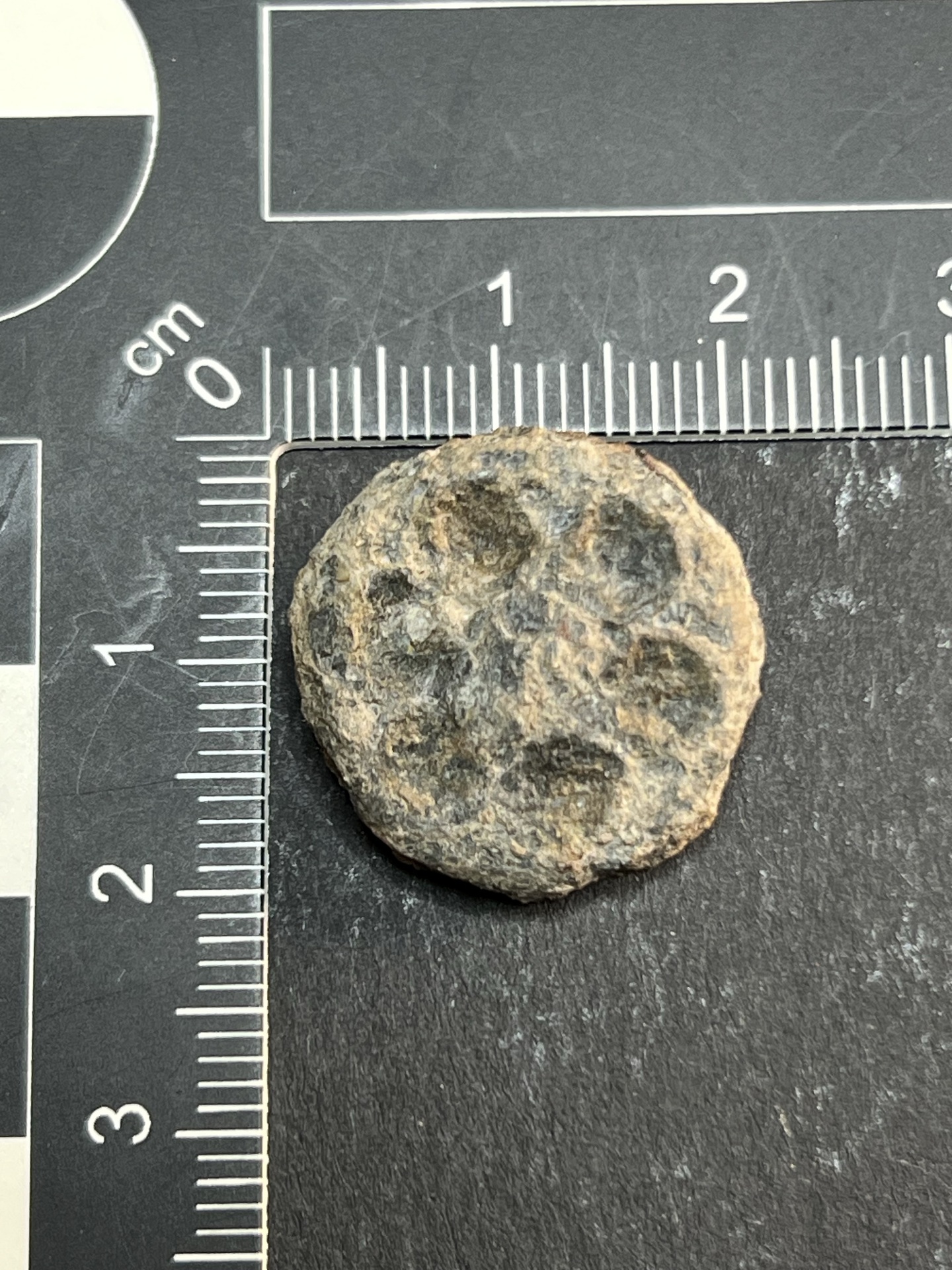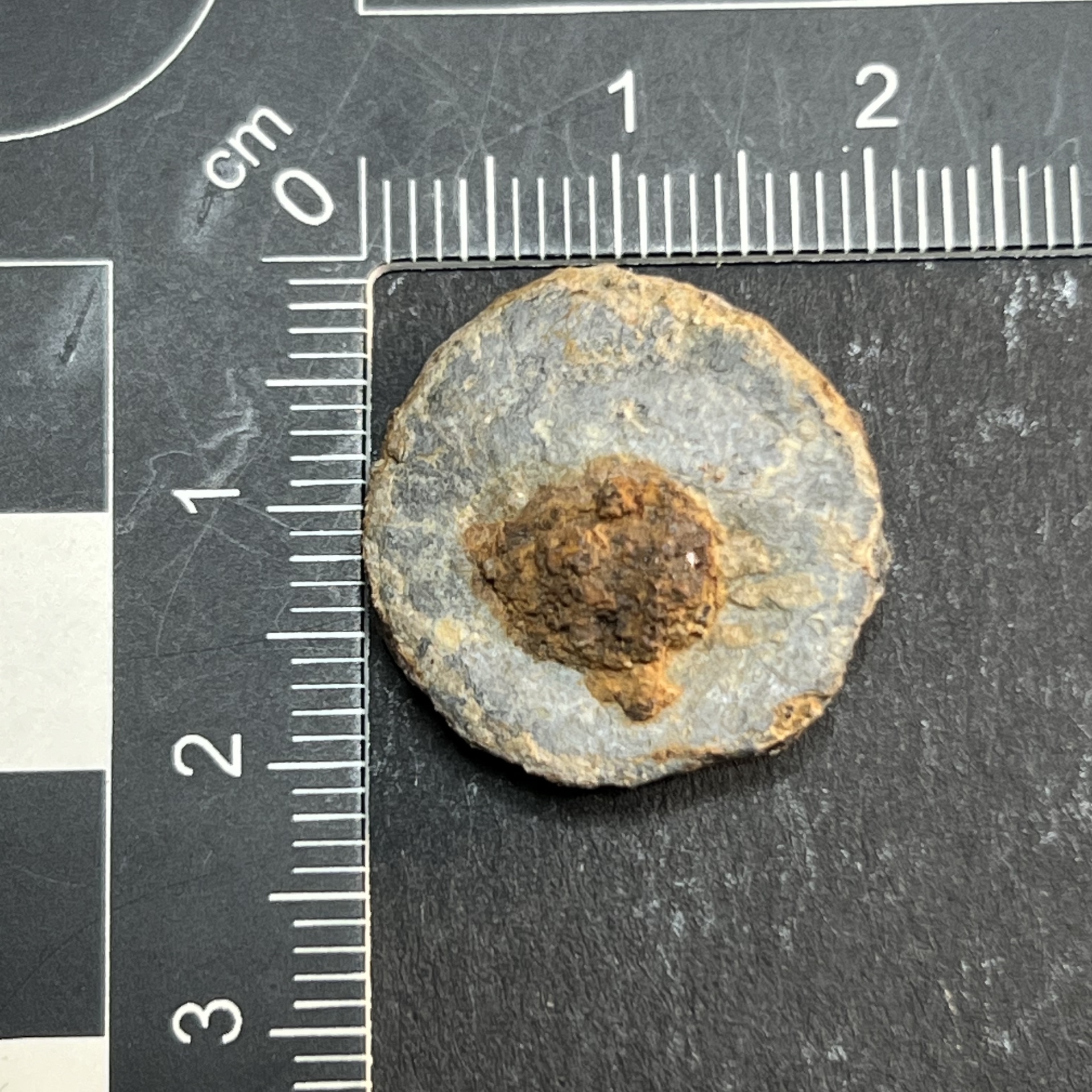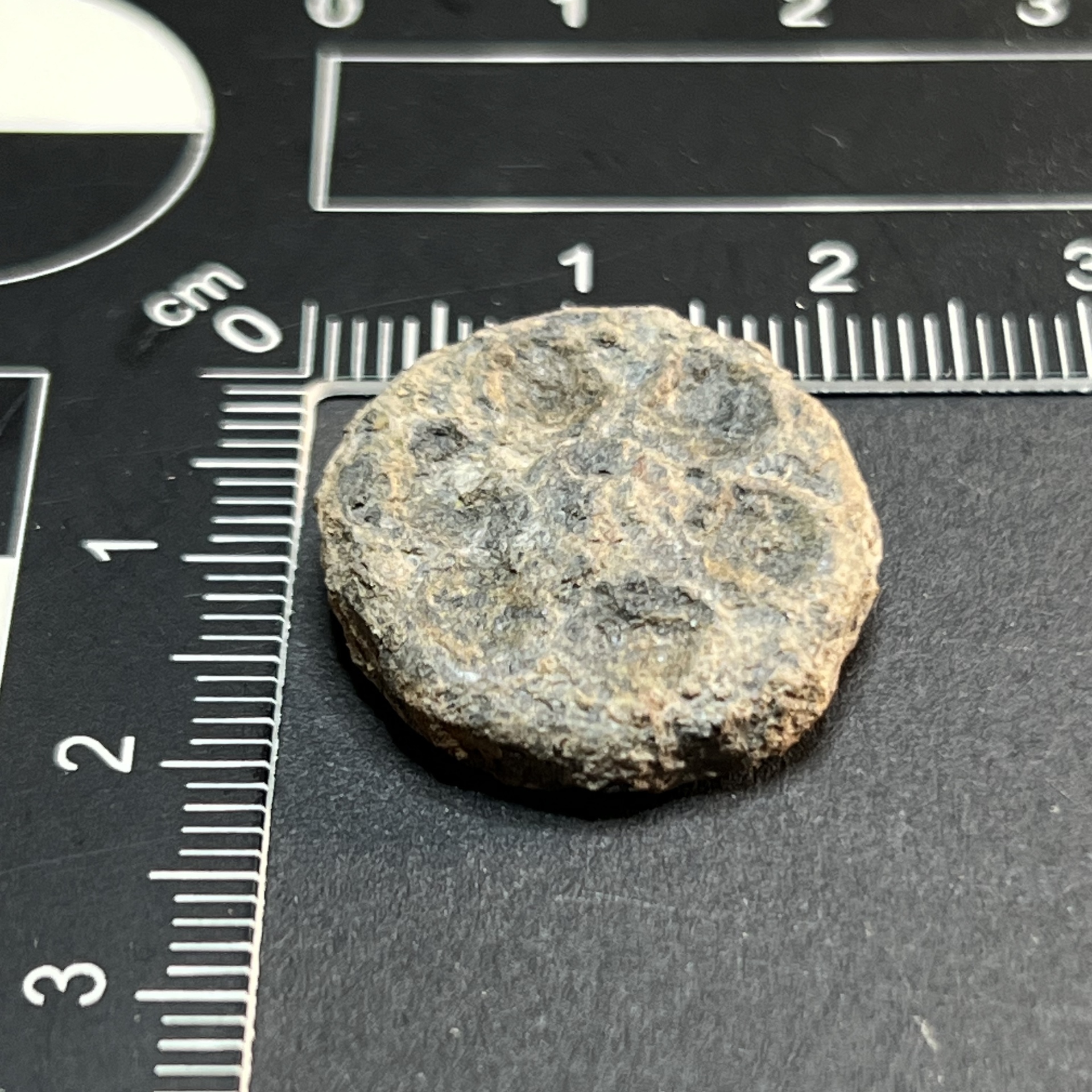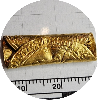Category:
Period:
Description:
Button with depressions, lead casting with metal eyelet remains, striking pattern with six depressions and raised center, pattern corresponds to a brooch find in the wider area of the site (see LK Hildesheim/Ortschaft Holle) dating as a guess!
Material:
Lead
Iron
Iron
Weight:
5,8 g
Height:
5,6 mm
Diameter:
23,0 mm
Condition:
Mostly preserved
Detector find:
Yes
Country:
Germany
County:
Hildesheim
Please help us identify this find!
Front / Cleaned with water & brush
Rear / Cleaned with water & brush
Cleaned with water & brush
Social Media & E-mail
Copy and share link:
To write a comment, please log in.



















Ute Bartelt 16.3.2025
The lack of a pin holder/needle stop (or even any indication of one) on the back, combined with the material, speaks against a brooch—even if the decoration is somewhat reminiscent of early medieval disc brooches. I wonder why anyone would provide a date if they don't even know exactly what it is. There's absolutely no shame in not being able to provide a date (happens to us archaeologists all the time). A proper description, including dimensions, is much more important (I would have been interested in the thickness of the object, for example).
1
4 Replies
DiggingEverySignal 16.3.2025
Thanks for pointing out the proper naming, but my text actually negates the initial idea of the brooch, and the medieval date is simply inferred from the other finds that have surfaced in the complex. I'll, of course, adjust it appropriately, as well as add the dimensions and weight. 🙂
Ute Bartelt 17.3.2025
But these are all surface finds. Thus, this isn't a single, unified find (complex). Especially at surface sites, everything is jumbled up, not only because they can be multi-period sites, but also because there's always a lot of modern material on the surfaces (a veil of modern finds over manure deposits).
1
DiggingEverySignal 17.3.2025
Thanks for this tip. Since, as a metal detectorist, I'm definitely not allowed to dig deeper than the so-called plough depth of 40 cm, or whatever is specified as the excavation depth, all finds by the participating detectorists are essentially surface finds. Except for those that may be retrieved from greater depths to support archaeological excavations or directly under archaeological supervision. Unfortunately, I misused the term "find complex" in this context. My point was to explain that the other finds in this area of surface sounding also fall within the specified timeframe, and therefore this time frame is appropriate for me. Of course, I'm capable of learning and will therefore adhere to the exact meanings of the archaeological terminology...
Ute Bartelt 17.3.2025
Correct, these are all surface finds.
1
Markus Wehmer 1.4.2025
So, I think this is a brooch, because with a little imagination, you can see the position of the former (originally soldered) needle holder (two rectangular spots) on the back. It's probably a locally manufactured imitation of a Bos (2007/2008) Type 2.4.1.1, but cast from a lead-tin alloy instead of brass. Accordingly, the date would be the very late 10th to early 11th century.
1
2 Replies
DiggingEverySignal 1.4.2025
Okay, thanks for the tip! I'll do some more research on that. The date seems to be consistent with the other brooches found in the area! 👍🏼 I'd rather interpret the "rust" on the back as a built-in metal eyelet, but I'll follow the new approach, thanks!
Markus Wehmer 1.4.2025
The rust could also have come from a small iron needle that was hung in the needle holder.
1
Related finds
Arsen-bronze
Arsen-bronze
Lead
18th century AD
18th century AD
39 - 40 (Nokta Legend)






